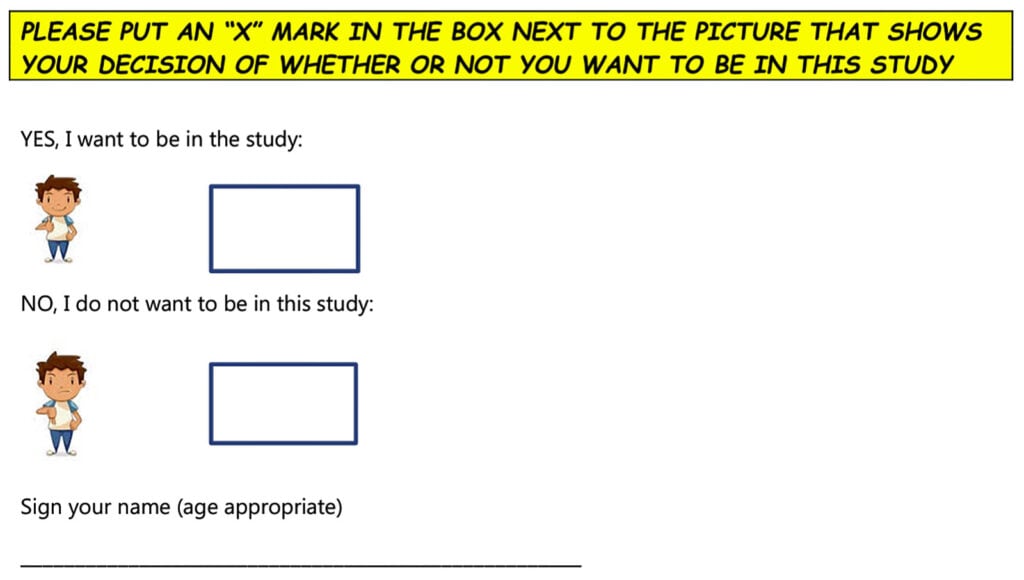Miss a day, miss a lot. Subscribe to The Defender's Top News of the Day. It's free.
While the Centers for Disease Control and Prevention (CDC) was promoting the COVID-19 vaccine as “safe and effective” for children and teens, Pfizer was studying whether and how much it damaged their hearts, according to a DailyClout report on internal Pfizer documents.
The documents show that Pfizer conducted a “Phase 2/3 Study” in Europe, during which it vaccinated and collected blood samples from children ages 5-11 and 12-15 and tested them for troponin I.
Troponin I, a protein released into the bloodstream when the heart is damaged, is an indicator of subclinical myocarditis.
Pfizer began the study in September 2021, the month before the U.S. Food and Drug Administration (FDA) granted Pfizer emergency use authorization (EUA) for its COVID-19 vaccine for children ages 5-11.
The FDA said it based the EUA on the agency’s “thorough and transparent evaluation of the data” that found “no serious side effects.”
However, Pfizer’s ongoing active surveillance and testing for troponin 1 was an acknowledgment of the undisclosed risk of vaccine-induced myocarditis and pericarditis, according to Dr. Christopher Flowers, who wrote the report on the Pfizer documents for DailyClout.
Neither Pfizer nor the FDA made the results of the vaccine maker’s study available to the public, Flowers told The Defender.
Flowers, a retired academic radiologist with 40-plus years of clinical experience, has been sifting through the documents Pfizer provided the FDA in its EUA application since the FDA began releasing the documents in 2022 under a court order.
He has focused specifically on evidence of myocarditis among young people.
He said it is particularly worrying that Pfizer was testing young children for markers of subclinical myocarditis because they are not typically an age group at risk for the condition.
“If they were concerned about it, and at the same time they were telling everyone it was safe to use, well, the left hand is doing something different to what the right hand is doing,” he said.
Flowers said it is even more concerning that the outcomes haven’t been made public. Because if young children do have higher troponin 1 levels post-vaccination, it would be another indicator they should not take the vaccine.
“We have found that a lot of these children’s trials were dropped. On the clinicaltrials.gov website [where clinical trials are registered], a number of the proposed trials Pfizer told the FDA they were going to do disappeared off the site, which means they are not taking place” he added.
“So we have concerns that they knew something was going on, but we don’t have the data. We want truth, we want transparency. That’s what drove me to write this report.”
Flowers’ report is part of the DailyClout and War Room Project to analyze the 450,000 pages of Pfizer’s records on its mRNA COVID-19 vaccine — records the drugmaker tried unsuccessfully to keep private for 75 years.
Flowers heads up thousands of volunteer scientists, doctors, nurses, attorneys and others at the project who have been reviewing the documents, submitting related Freedom of Information Act (FOIA) requests and issuing investigative reports.
Children provide informed ‘assent’?
Flowers’ report analyzed Pfizer documents released in October 2023, including study protocols and consent forms provided to parents, accompanied by informed “assent” forms for the child subjects, explaining the study in language meant to be appropriate for young children and teens.
The assent form for the younger children took the form of a comic. Children sign the assent forms — if they are old enough to have a signature.

“The cynicism of a corporation’s employees handing children comic books in order to secure their agreement to a test of possibly life-threatening heart damage, needs no emphasis,” Flowers wrote.
The parents’ information document highlighted the fact that children who contract COVID-19 may also be affected by “Multi-Inflammatory Syndrome-Children,” which can affect their organs.
It also informed parents that myocarditis is a possible but unlikely side effect for children and that they should seek medical attention if their child experiences chest pain, shortness of breath, or feelings of having a fast-beating, fluttering or pounding heart.
The study targeted approximately 1,250 children to receive two injections each. The children were swabbed, presumably for COVID-19, at each visit.
In the younger age group, half of the children received a placebo and in the older group, all children received the active vaccine. Children in the placebo group for the younger test subjects would be unblinded and offered the vaccine after six months.
Parents would record any observed symptoms in their children in an electronic diary for seven days after each injection. Blood samples would be taken at the first visit and a second blood sample to test for troponin would be drawn at a clinical visit four days after their shot. Later follow-ups would happen only via phone.
Flowers noted that in a presentation at the FDA advisory committee’s Oct. 26, 2021, meeting, the agency indicated it had safety concerns for myocarditis and pericarditis for 5- to 11-year-olds and recommended post-marketing surveillance for these and other conditions.
He said Pfizer was seeking to show with the study that vaccine-induced myocardial damage was mild and temporary or that the vaccine was not causing myocarditis.
Because the study was conducted in Europe, only the Comirnaty version of the vaccine was studied, not the vaccine granted EUA in the U.S.
“The question arises: Was a study of only Comirnaty™ done to keep information away from the American public?” Flowers wrote.
What the public health agencies knew and when
The report adds to the large and growing body of evidence that Pfizer, the FDA and the CDC were aware — before the vaccines were authorized — of a link between the COVID-19 mRNA vaccines and myocarditis and that the condition remains a concern today.
Yet, although that evidence grew throughout 2021, CDC Director Rochelle Walensky continued to appear in the media, reporting that monitoring data indicated the vaccines were safe for children.
Today, the CDC still recommends the COVID-19 shot for everyone ages 5 and older — and even for infants 6 months and older. The CDC also added COVID vaccines to the childhood vaccination schedule.
The CDC and FDA ignored warnings from the Vaccine Adverse Event Reporting System (VAERS), a government-maintained database visible since early 2021.
During the week of Feb. 19, 2021, VAERS received enough serious adverse event reports to show myocarditis is associated with the COVID-19 vaccine in young males, according to a paper by Children’s Health Defense (CHD) scientists Karl Jablonowski, Ph.D., and Brian Hooker, Ph.D.
Data provided by the CDC in February 2023 following a FOIA request by CHD showed that on Feb. 28, 2021, the Israeli Ministry of Health also contacted the CDC, alerting the agency to the safety signal and requesting comment.
Flowers also wrote in 2022 another War Room/DailyClout report showing that the advisory committee for the FDA and CDC were also likely aware vaccines could be linked to myocarditis in Spring 2021 because they had received information from the Pfizer Post-Marketing Experience 5.3.6 document.
The White House and the CDC knew in April 2021 that the Pfizer COVID-19 mRNA vaccine was linked to heart damage on an unprecedented scale for a vaccine — but they hid that knowledge from the public while pushing vaccine mandates, according to emails obtained by DailyClout through a FOIA request.
The emails show the White House communications team struggling to craft a cover-up message that minimized the relationship between COVID-19 mRNA vaccines and myocarditis.
Yet on April 26, 2021, the CDC and FDA denied that “safety signals” existed for myocarditis following COVID-19 jabs.
In June 2021, Israel also reported a link between Pfizer’s second shot and myocarditis in males under 30.
Rather than incorporating this known risk into its messaging, Flowers wrote, the public health agencies first warned that myocarditis might result from COVID-19 infection — and on that basis encouraged vaccination.
Later, he said, they “worked hard publicly to minimize the seriousness of that risk, and to conceal that possible cause and effect.”
That effort, he noted, extended beyond the CDC to the Biden administration itself, which worked with social media companies to censor or limit information about myocarditis and COVID-19 more generally on social media, which was revealed as part of the “Twitter Files.”










